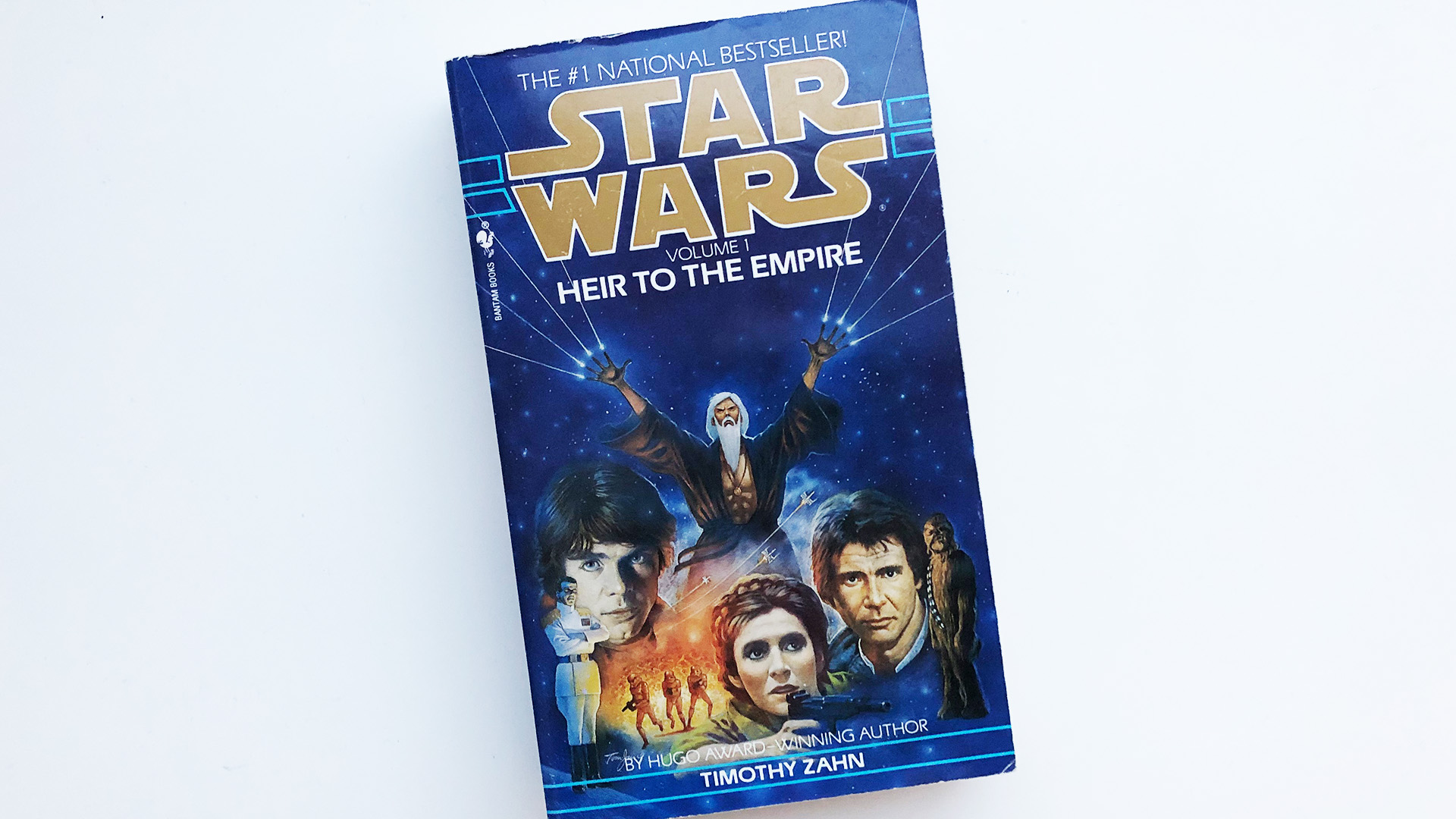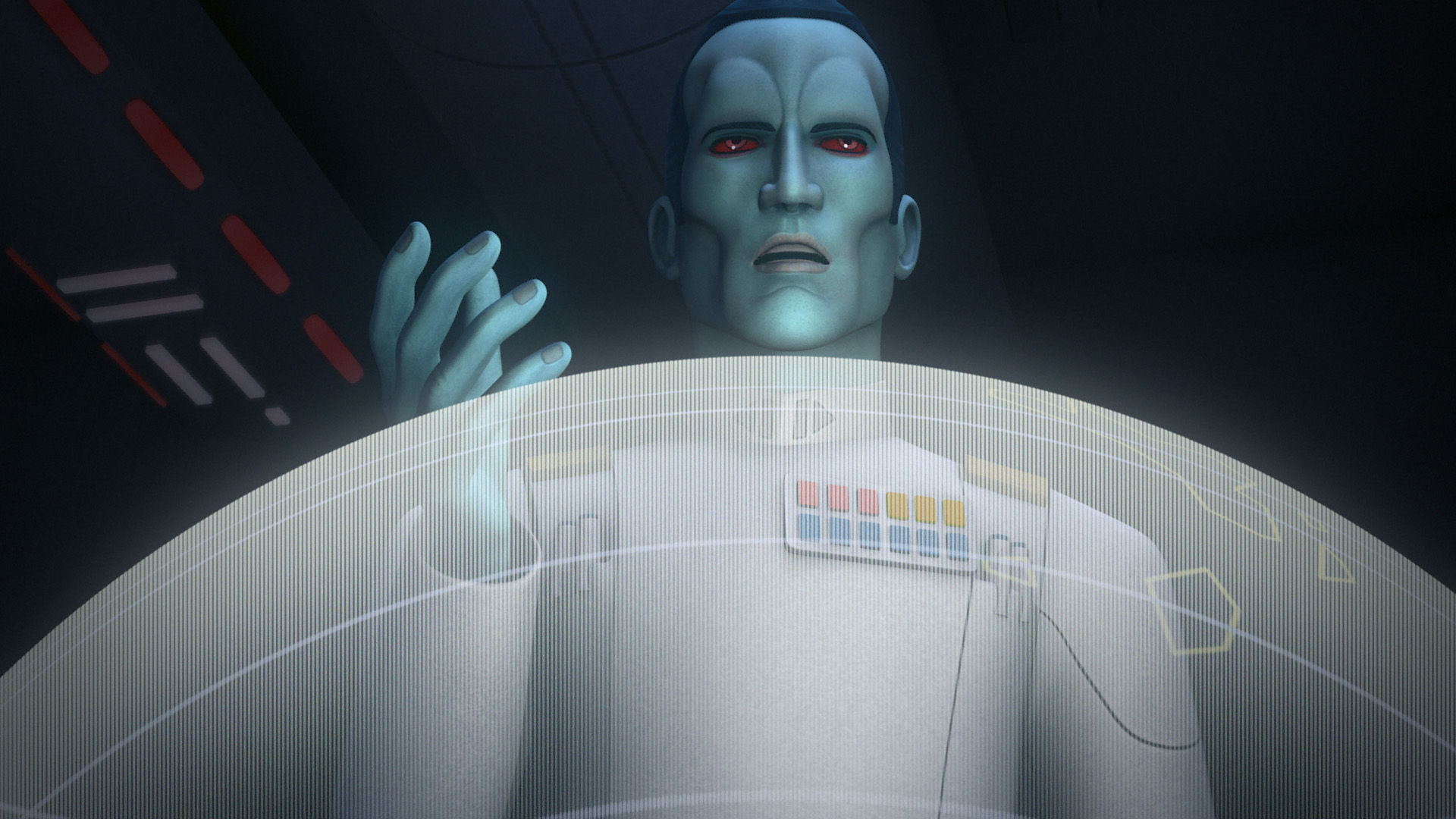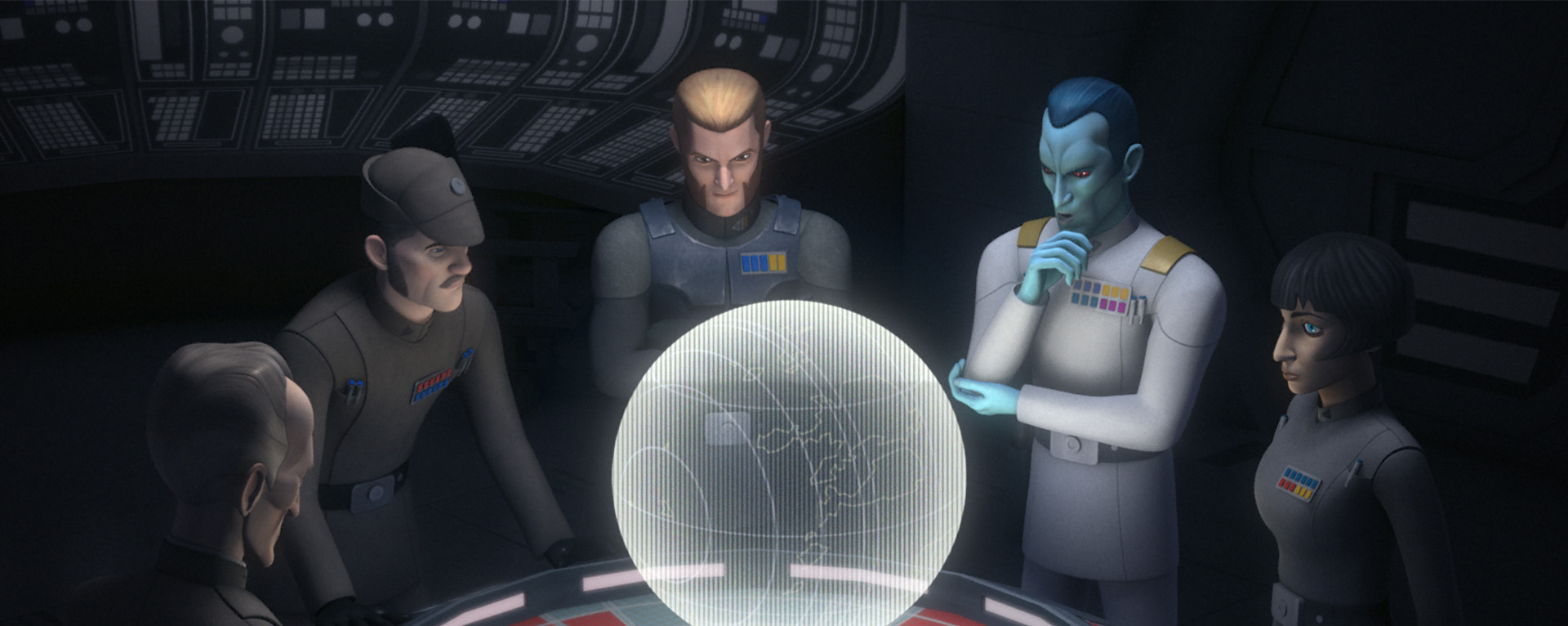Defining Moments: Enter Thrawn
From the Printed Word to the Screen, Lucasfilm Storytelling Crosses Mediums
Thirty years ago, Star Wars fans had few options for new storytelling. Though speculation about more feature films was rampant, there had been no releases of any kind in recent years. But in 1991 a singular arrival captured people’s attention: a new book entitled Heir to the Empire.
A work of author Timothy Zahn’s imagination distinct from George Lucas’ vision, the novel picked up the Star Wars narrative after the familiar events of Return of the Jedi (1983). Fans were eager to reunite with Luke Skywalker, Princess Leia, Han Solo, and other onscreen favorites. But Zahn opened the story with a new character: Grand Admiral Thrawn. A subdued and cunning villain, Thrawn had blue-skin, red eyes, and a memorable white uniform. In his debut scene, the Grand Admiral schooled a subordinate officer in tactics as their ship was attacked by rebels. “You don’t have to understand, Lieutenant,” said Thrawn. “Just obey.”
By the 1990s, Lucasfilm leadership had planned for new storytelling in books, comics, games, and other media to help sustain the place of Star Wars in popular culture. Thrawn and other characters original to these stories endeared themselves to readers and gamers alike. As a sign of their popularity, some like Thrawn even became action figures (the villain’s own figure was primarily inspired by his appearance in comics).
As Grand Admiral Thrawn endured over the years, newer Lucasfilm creatives such as executive producer Dave Filoni would remember the character fondly. In 2016, Filoni and the Lucasfilm Animation crew on Star Wars Rebels (2014-18) decided to bring the villain to the screen for the first time. That autumn, the Grand Admiral kicked off the show’s third season with characteristic subtlety. (Timothy Zahn also wrote the novel, Star Wars: Thrawn, published in 2017.)
Not unlike his original entry from Heir to the Empire, in Rebels Thrawn calmly dealt with a strategic problem, demonstrating his keen observation and ability to think like his enemy. “They’ll be the architects of their own destruction,” Thrawn declared of the rebels. And with him as an antagonist, they would come very close to such a fate.



